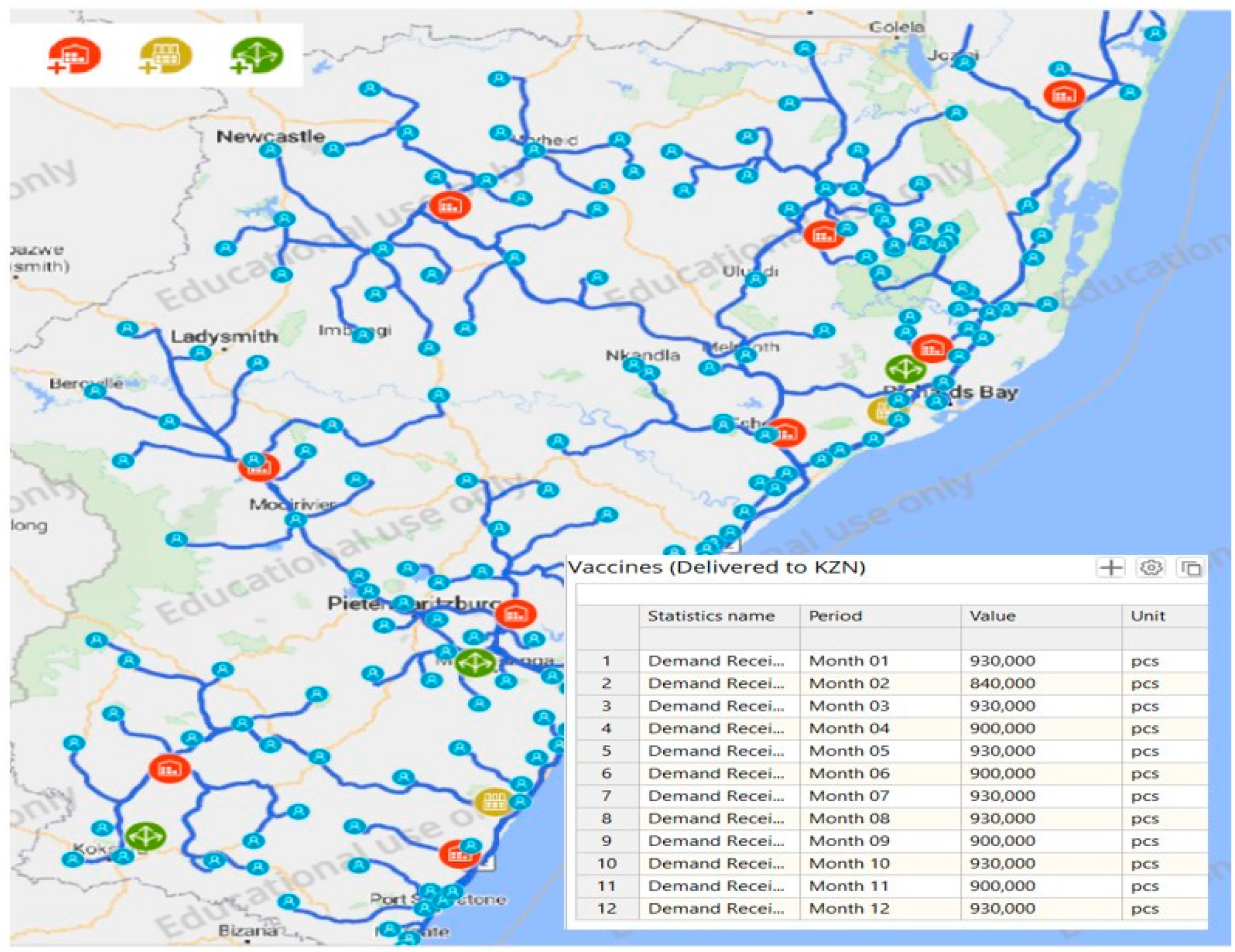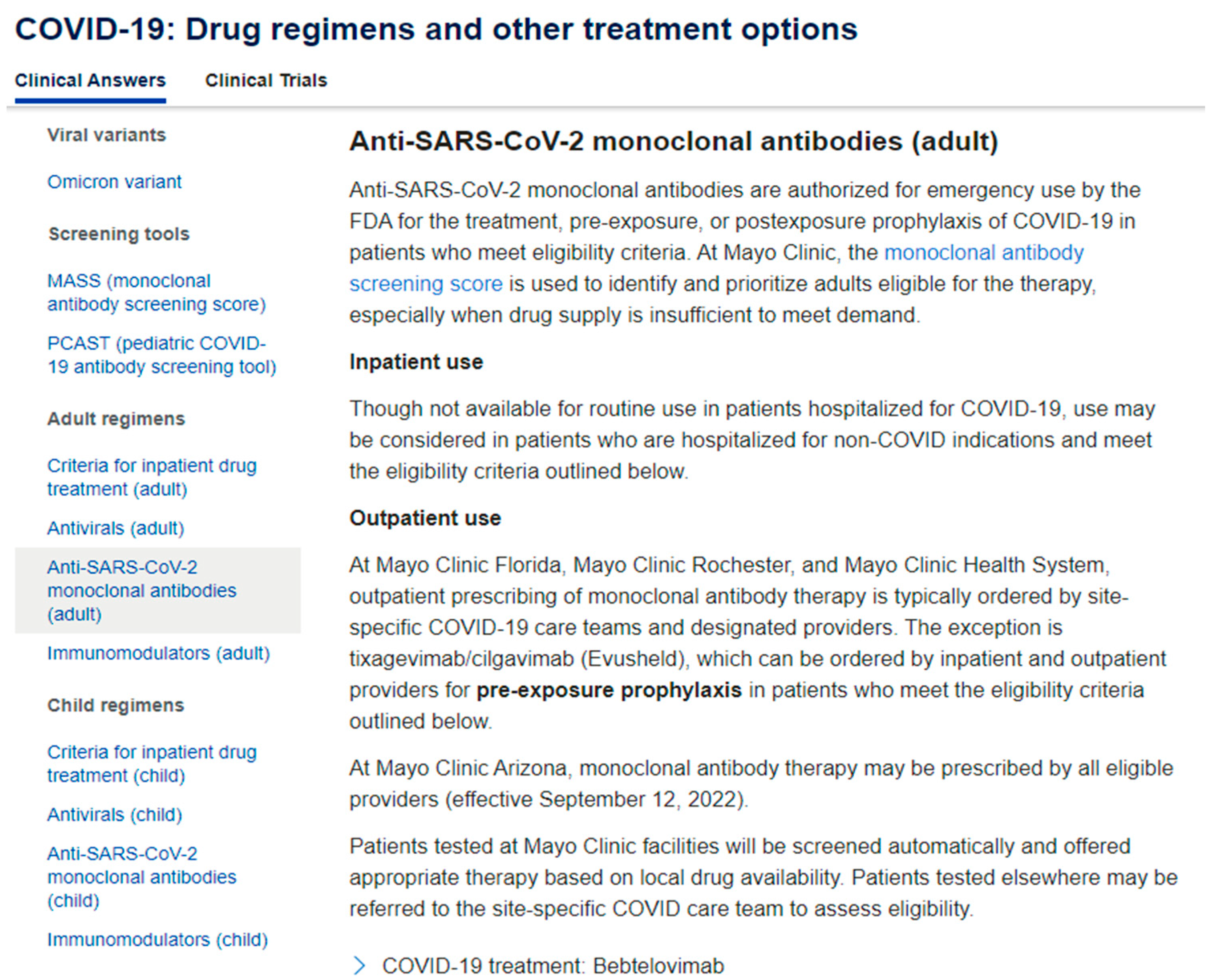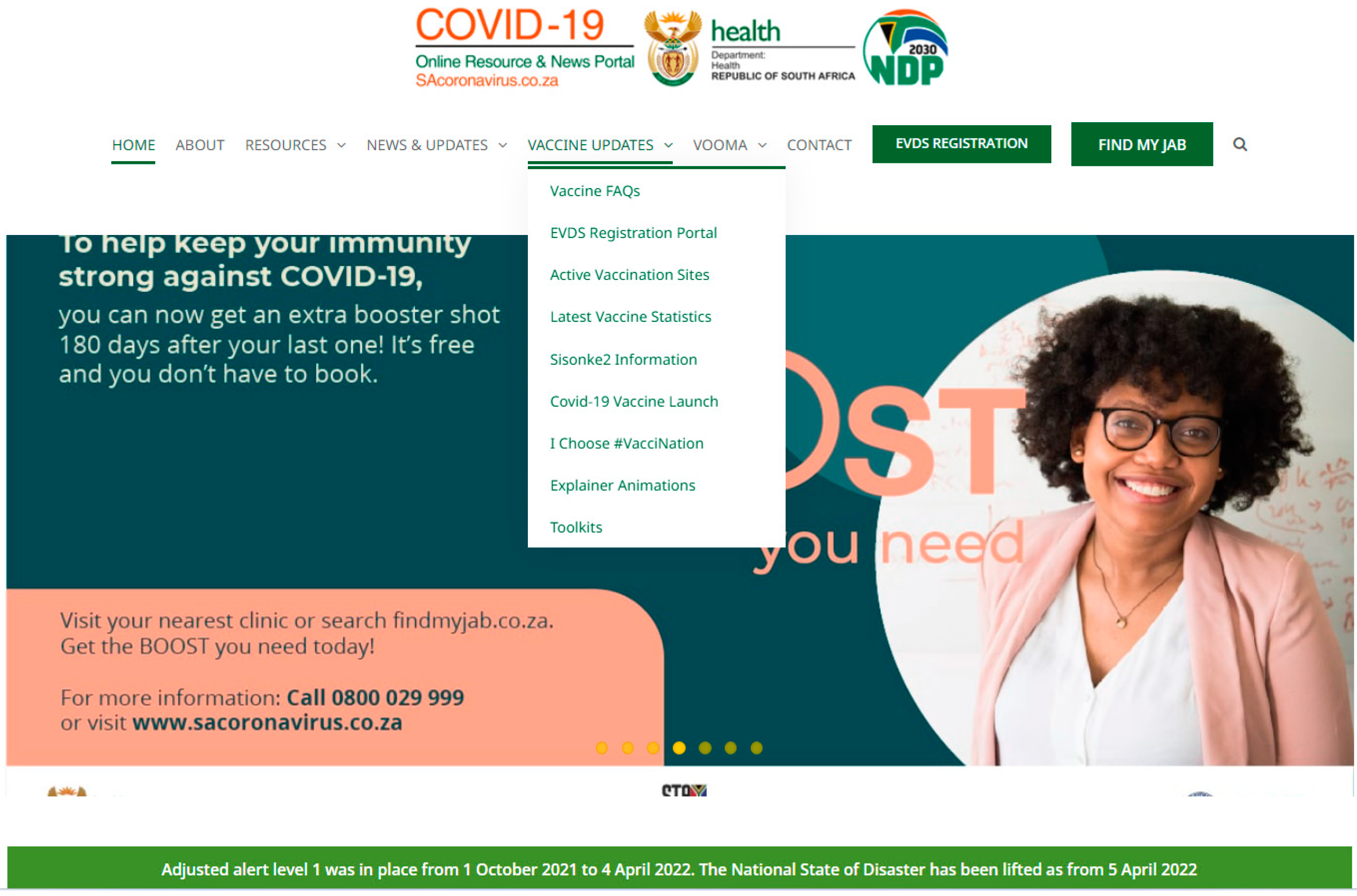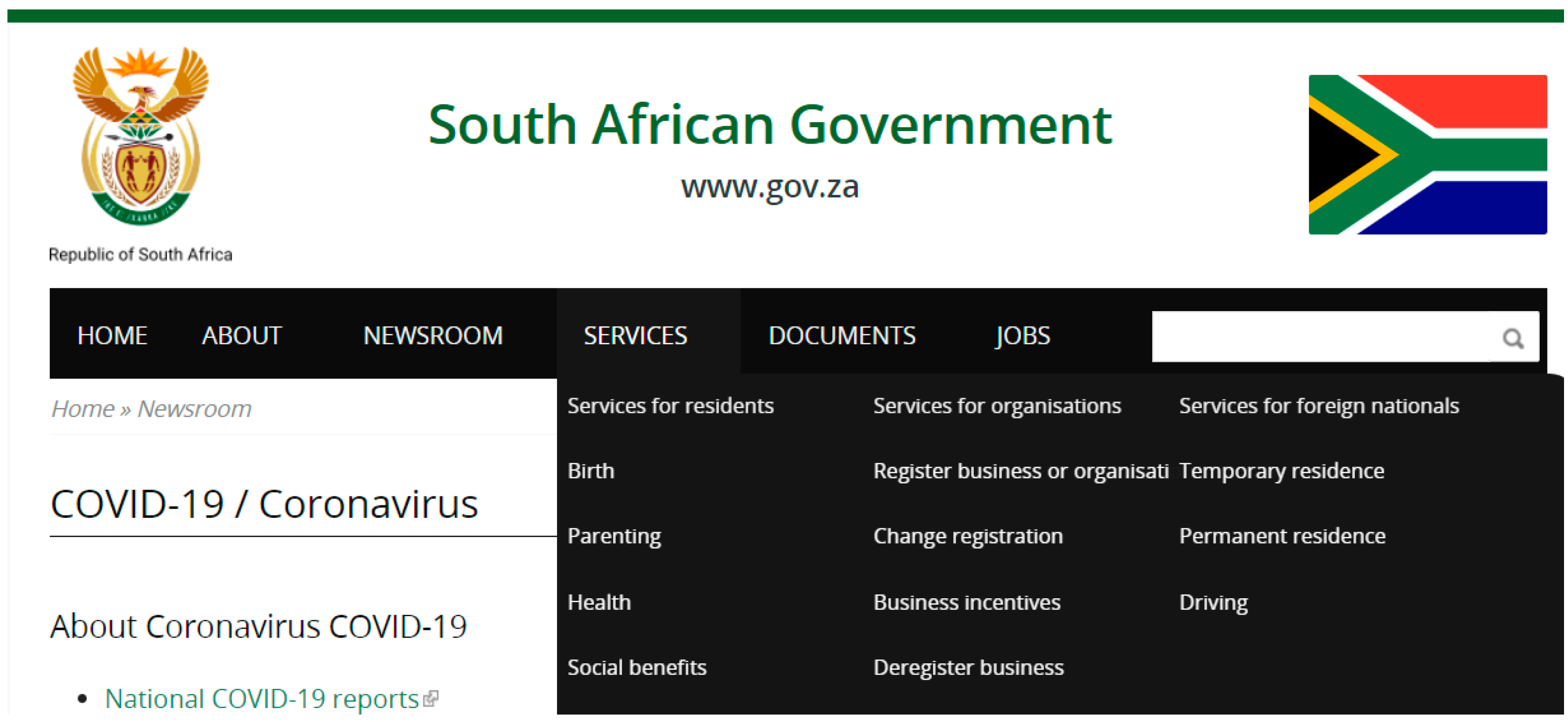KMS as a Sustainability Strategy during a Pandemic
Abstract
:1. Introduction
2. Background
3. Benefits of Knowledge Management Systems during a Pandemic
- An updated KMS provides knowledge at any time, removing human dependencies [20], which is ideal in a healthcare institution during a pandemic.
- A KMS provides an unlimited environment for rapid collaboration and enrichment of the captured knowledge, which could speed up the containment of a pandemic [15].
- A KMS enables collaborators and scientists to find a solution much faster since it provides a lot of information, which can be used to gain insights [21].
- A KMS provides healthcare practitioners with opportunities to detect fast-spreading diseases and trace their origin before such diseases become pandemics [22].
- Disease profiling and trend analysis can easily be drawn from a KMS, thereby enabling practitioners to generalise remedies and standardise treatment procedures [23].
- A KMS enriches healthcare practitioners’ skills and knowledge about disease characteristics, further capacitating them with appropriate and tested medicine and drug knowledge [24].
- A KMS enables citizens to receive treatments using the best-known procedures and the ideal medication that has been reviewed by many healthcare experts [23].
- KMS reduce incorrect diagnoses because the relevant knowledge is already profiled [7].
- Citizens receive improved healthcare services as a KMS provides an opportunity for innovation [24].
- Citizens receive consistent knowledge of diseases and medical drugs, and the KMS removes subjective and personal opinions, moving towards a scientific position [23].
- Manufacturers have a platform to coordinate with their stakeholders using a KMS-based supply chain [25].
- A KMS enables organisations to find effective and efficient ways to run production operations [26].
- Organisations can create and embed knowledge in KMS-driven processes and procedures [1].
- A KMS enables the government to communicate consistent information to citizens, which is necessary for citizens to cooperate with the government [11].
- At times during the early months of the pandemic, governments were not reaching out to all healthcare stakeholders [5]. Conversely, a KMS enables the Department of Health to identify all the stakeholders and collaborate with all involved.
- By eradicating counter-knowledge during a pandemic [11], a KMS could provide the government with adequate knowledge and information to dismiss the malicious “myths” that flood social media.
4. Methodology
5. Results
5.1. Supply Chain-Anylogistix Software
5.2. Disease Profiling and Treatment–AskMayoExpert
5.3. Department of Health-Websites
5.4. KMS as a Sustainability Strategy during a Pandemic
6. Future Research
7. Conclusions
Author Contributions
Funding
Data Availability Statement
Conflicts of Interest
References
- Pinto, C.A.S. Knowledge management as a support for supply chain logistics planning in pandemic cases. Braz. J. Oper. Prod. Manag. 2020, 17, 1–11. [Google Scholar] [CrossRef]
- Department of Co-Operative Governance and Traditional Affairs. Declaration of a National State of Disaster; Government of South Africa: Pretoria, South Africa, 2020; Volume 313, p. 1.
- Ramaphosa, C. Escalation of Measures to Combat COVID-19 Epidemic; Government of South Africa: Union Buildings, Tswane, South Africa, 2020; pp. 1–9.
- Li, F. Disconnected in a pandemic: COVID-19 outcomes and the digital divide in the United States. Health Place 2022, 77, 102867. [Google Scholar] [CrossRef] [PubMed]
- Cole, A.; Baker, J.S.; Stivas, D. Trust, Transparency and Transnational Lessons from COVID-19. J. Risk Financ. Manag. 2021, 14, 607. [Google Scholar] [CrossRef]
- Maramba, G.; Smuts, H. Guidelines for Selecting Appropriate Knowledge Management System Implementation Frameworks. Int. J. Knowl. Manag. 2020, 16, 81–108. [Google Scholar] [CrossRef]
- Maramba, G.; Coleman, A.; Ntawanga, F. Causes of Challenges in Implementing Computer-Based Knowledge Management Systems in Healthcare Institutions: A Case Study of Private Hospitals in Johannesburg, South Africa. Afr. J. Inf. Syst. 2020, 12, 4. [Google Scholar]
- Pinzaru, F.; Zbuchea, A. Adapting Knowledge Management Strategies in the Context of the COVID-19 Pandemic. A Preliminary Overview. In Proceedings of the 14th International Management Conference “Managing Sustainable Organizations”, Bucharest, Romania, 5–6 November 2020; pp. 307–318. [Google Scholar]
- Ammirato, S.; Linzalone, R.; Felicetti, A.M. Knowledge management in pandemics. A critical literature review. Knowl. Manag. Res. Pract. 2020, 19, 415–426. [Google Scholar] [CrossRef]
- İrkey, T.; Tüfekci, A. The importance of business continuity and knowledge management during the pandemic period. Multidiscip. Digit. Publ. Inst. Proc. 2021, 74, 18. [Google Scholar]
- Harrison, E.A.; Wu, J.W. Vaccine confidence in the time of COVID-19. Eur. J. Epidemiol. 2020, 35, 325–330. [Google Scholar] [CrossRef] [Green Version]
- Wang, W.-T.; Wu, S.-Y. Knowledge management based on information technology in response to COVID-19 crisis. Knowl. Manag. Res. Pract. 2021, 19, 468–474. [Google Scholar] [CrossRef]
- Chaturvedi, S.; Singh, T. Knowledge management initiatives for tackling the COVID-19 pandemic in India. Metamorphosis 2021, 20, 25–34. [Google Scholar] [CrossRef]
- Ivanov, D. Viable supply chain model: Integrating agility, resilience and sustainability perspectives—Lessons from and thinking beyond the COVID-19 pandemic. Ann. Oper. Res. 2020, 319, 1411–1431. [Google Scholar] [CrossRef] [PubMed]
- Zieba, M.; Bongiovanni, I. Knowledge management and knowledge security—Building an integrated framework in the light of COVID-19. Knowl. Process Manag. 2022, 29, 121–131. [Google Scholar] [CrossRef]
- Bolisani, E.; Cegarra Navarro, J.G.; Garcia-Perez, A. Managing counter-knowledge in the context of a pandemic: Challenges for scientific institutions and policymakers. Knowl. Manag. Res. Pract. 2021, 19, 517–524. [Google Scholar] [CrossRef]
- Liu, G.; Tsui, E.; Kianto, A. An emerging knowledge management framework adopted by healthcare workers in China to combat COVID-19. Knowl. Process Manag. 2022, 29, 284–295. [Google Scholar] [CrossRef]
- Morawiec, P.; Sołtysik-Piorunkiewicz, A. Knowledge Management Significance in Agile Organization in Lights of COVID-19 Pandemic Changes. In Proceedings of the European, Mediterranean, and Middle Eastern Conference on Information Systems, Viurtual Event, 8–9 December 2021; pp. 705–722. [Google Scholar]
- Sivagnanam, P.; Pillai, A.R.; Elangovan, R.; Parayitam, S. Knowledge management process, infrastructure, and system quality as resilient strategies to respond to COVID-19 pandemic challenges: Evidence from higher educational institutions in India. Knowl. Process Manag. 2022, 1–22. [Google Scholar] [CrossRef]
- Durst, S.; Zieba, M. Mapping knowledge risks: Towards a better understanding of knowledge management. Knowl. Manag. Res. Pract. 2019, 17, 1–13. [Google Scholar] [CrossRef]
- Chen, W.; Horby, P.; Hayden, F.; Gao, G. A novel coronavirus outbreak of global health concern. Lancet 2020, 395, 470–473. [Google Scholar]
- Karamitri, I.; Kitsios, F.; Talias, M.A. Development and Validation of a Knowledge Management Questionnaire for Hospitals and Other Healthcare Organizations. Sustainability 2020, 12, 2730. [Google Scholar] [CrossRef] [Green Version]
- Majumder, M.; Mandl, K.D. Early Transmissibility Assessment of a Novel Coronavirus in Wuhan, China; National Institutes of Health: Wuhan, China, 2020.
- Bordoloi, P.; Islam, N. Knowledge management practices and healthcare delivery: A contingency framework. Electron. J. Knowl. Manag. 2012, 10, 110–120. [Google Scholar]
- Butt, A.S. Supply chains and COVID-19: Impacts, countermeasures and post-COVID-19 era. Int. J. Logist. Manag. 2021, ahead of print. [Google Scholar] [CrossRef]
- Zhu, G.; Chou, M.C.; Tsai, C.W. Lessons learned from the COVID-19 pandemic exposing the shortcomings of current supply chain operations: A long-term prescriptive offering. Sustainability 2020, 12, 5858. [Google Scholar] [CrossRef]
- Olan, F.; Arakpogun, E.O.; Jayawickrama, U.; Suklan, J.; Liu, S. Sustainable supply chain finance and supply networks: The role of artificial intelligence. IEEE Trans. Eng. Manag. 2022, 1–16. [Google Scholar] [CrossRef]
- Supply Chain Council. Supply Chain Operations Reference (SCOR®) Model Overview. 2022. Available online: https://pessolutions.com/wp-content/uploads/2018/02/SCOR10-Overview.pdf (accessed on 29 May 2023).
- Cohen, J.; van der Meulen Rodgers, Y. Contributing factors to personal protective equipment shortages during the COVID-19 pandemic. Prev. Med. 2020, 141, 106263. [Google Scholar] [CrossRef] [PubMed]
- Schleper, M.C.; Gold, S.; Trautrims, A.; Baldock, D. Pandemic-induced knowledge gaps in operations and supply chain management: COVID-19’s impacts on retailing. Int. J. Oper. Prod. Manag. 2021, 41, 193–205. [Google Scholar] [CrossRef]
- Singh, S.; Kumar, R.; Panchal, R.; Tiwari, M.K. Impact of COVID-19 on logistics systems and disruptions in food supply chain. Int. J. Prod. Res. 2021, 59, 1993–2008. [Google Scholar] [CrossRef]
- Johns Hopkins University. Corona Virus Resource Center; Johns Hopkins University: Baltimore, MD, USA, 2020. [Google Scholar]




| Software Name | Rating | Website |
|---|---|---|
| e-Procure | 5.00 | https://get.e-procure.net/, accessed on 17 January 2023 |
| Precoro | 4.80 | https://get.precoro.com/, accessed on 17 January 2023 |
| Anylogistix | 4.47 | https://www.anylogistix.com/, accessed on 18 January 2023 |
| Route4Me | 4.42 | https://www.route4me.com/, accessed on 18 January 2023 |
| Odoo | 4.10 | https://www.odoo.com/, accessed on 17 January 2023 |
| Feature | Summary |
|---|---|
| Ease of deployment | The KMS must be easy to deploy across many platforms [15]. |
| Scaleability | It should allow for upscaling or downscaling [28]. |
| Integrate with other applications | Integration with other applications enables interactive collaboration [15]. |
| Track inventory and distribution chain | A KMS that provides inventory management and distribution capability is critical during a pandemic [4]. |
| Manage suppliers and raw materials | Curfews and travel restrictions were disruptive during the pandemic, and knowledge about the suppliers of raw materials plays an important role in keeping production running [10]. |
| Manage orders and demand | An automated KMS supply chain model that predicts demand based on the escalation of the pandemic can aid decision-makers [1]. |
| Manage production | The production of vaccines for the whole world is an enormous task, particularly considering third-world countries that do not have production facilities [18]. Therefore, a KMS that enables the management of production could enable drug manufacturing companies to create small production plants anywhere in the world. |
| Manage transportation | The distribution of vaccines requires proper planning of transport logistics from cargo airliners to vaccination sites. Therefore, a KMS with this aspect could ease the burden of logistics planning [1]. |
| Ability to determine costs | Production costs, transport costs and operating costs are critical aspects to keep sight of during a pandemic so that adequate funding is sourced and made available [13]. |
| Time | Time statistics are an important aspect during a pandemic, as the time taken to manufacture vaccines, the time taken to ship and the time vaccines should stay in transit should be known in advance to enable transportation planning [11,29]. |
| Performance indicators and statistics | Performance indicators provide red and green flags in the production line and supply chain, as well as in operations. These are essential elements during a pandemic as they could enable the improvement of processes and also identify bottlenecks [30,31]. |
| Visualisation and digital twin simulation | With data and modern technology, it is now possible to visualise and simulate a real-world scenario [4]; a KMS with these options will enable the simulation of real-world scenarios. |
| Financial statistics | Drawing financials from a KMS will enable an understanding of true values from the supply chain. |
| Availability and failover cluster | The supply chain system must work even if it is offline; it should have automatic recovery functionality and failover clusters [30,31]. |
| Feature | Summary |
|---|---|
| Scientific collaboration | A comprehensive and authoritative KMS should allow for scientists’ input and collaboration and also validate the knowledge acquired. |
| Medical specialists’ collaboration | Medical specialists play an important role since they overlap between medical practice and scientists; their contribution is significant to a KMS during and after a pandemic. |
| Medical practitioners’ collaboration | Medical practitioners require knowledge for their practices—they treat patients and are on the front line of identifying the effects of drugs and medical procedures. Their feedback on KMS is crucial since it creates and authenticates procedures and drugs. |
| Disease profile | Disease profiling is essential, particularly during a pandemic. As such, COVID-19 exposed the healthcare sector to an environment with diffused knowledge—most countries did not have disease knowledge bases [21]. |
| Medical drugs | Adequate knowledge about drugs, such as their side effects, quantities and background on where they have been used or tested, is important because it enables medical practitioners to work faster and more effectively using approved drugs during a pandemic [11]. |
| Professional recommendations | Other medical professionals in the healthcare sector also play significant roles; their contributions and collaborations in KMS formation and refinement can make a difference during a pandemic. |
| Research and development | Innovations, improvements and continuous research are essential aspects during and after a pandemic, and the lessons learnt shape the future [15], i.e., a KMS is a platform for hosting this type of knowledge. |
| Client interaction | A KMS must allow some interaction with clients, particularly the patients; they do not need to view detailed and technical information but rather disease-profiled data. |
| Disease trend analysis | A KMS with detailed information provides a platform for performing trend analysis to infer the patterns of diseases [13]. |
| Irregularity triggers | Events and data-based triggers provide warnings to knowledge users and experts. A KMS with these types of triggers provides timeous warnings, i.e., before a pandemic takes effect. Such a KMS allows healthcare sectors and governments to plan for a pandemic. |
| Section | Business Case | Role of the KMS during a Pandemic |
|---|---|---|
| Identification of the pandemic | Disease profiling—AskMayoExpert |
|
| Sourcing of drugs | Supply chain—Anylogistix application |
|
| Communication and administration of the population and resources | Communication—government websites |
|
Disclaimer/Publisher’s Note: The statements, opinions and data contained in all publications are solely those of the individual author(s) and contributor(s) and not of MDPI and/or the editor(s). MDPI and/or the editor(s) disclaim responsibility for any injury to people or property resulting from any ideas, methods, instructions or products referred to in the content. |
© 2023 by the authors. Licensee MDPI, Basel, Switzerland. This article is an open access article distributed under the terms and conditions of the Creative Commons Attribution (CC BY) license (https://creativecommons.org/licenses/by/4.0/).
Share and Cite
Maramba, G.; Smuts, H.; Adebesin, F.; Hattingh, M.; Mawela, T. KMS as a Sustainability Strategy during a Pandemic. Sustainability 2023, 15, 9158. https://doi.org/10.3390/su15129158
Maramba G, Smuts H, Adebesin F, Hattingh M, Mawela T. KMS as a Sustainability Strategy during a Pandemic. Sustainability. 2023; 15(12):9158. https://doi.org/10.3390/su15129158
Chicago/Turabian StyleMaramba, George, Hanlie Smuts, Funmi Adebesin, Marie Hattingh, and Tendani Mawela. 2023. "KMS as a Sustainability Strategy during a Pandemic" Sustainability 15, no. 12: 9158. https://doi.org/10.3390/su15129158





